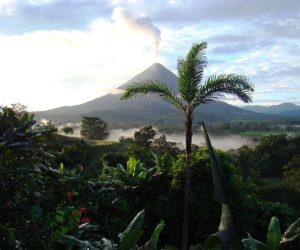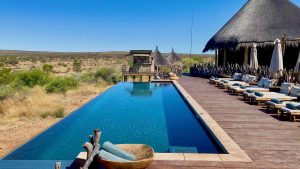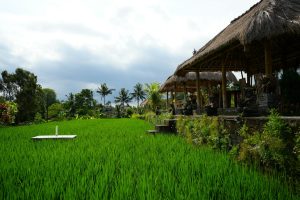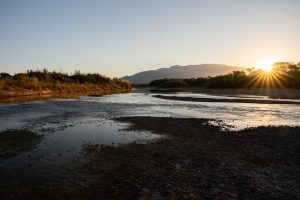
AMAALA, the ultra-luxury development located along Saudi Arabia’s north-western coast, has revealed its iconic design for the new Triple Bay Yacht Club, set to compete with Monaco and the Caribbean. Set within the Triple Bay Marina of the Prince Mohammed bin Salman Nature Reserve, AMAALA’s new Yacht Club is a keystone development with a captivating free-flowing structure that aims to create a one-of-a-kind meeting point between land and sea.
“AMAALA is one of the flagship Saudi Vision 2030 projects and remains central to the Kingdom’s ambition to become a global tourism leader. We anticipate that AMAALA will become an international hub for luxury yachting, and as such, the yacht club required a world-class design, influenced by the surrounding natural elements and Arabic heritage, and underpinned by our commitment to sustainability,” said John Pagano, CEO, AMAALA.
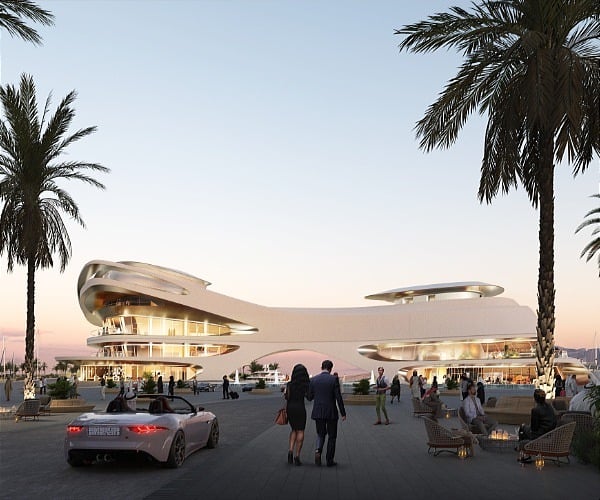
“HKS has created a signature piece of architecture at the heart of Triple Bay, and I look forward to seeing the concept become a globally iconic meeting place for luxury yachting enthusiasts from all over the world.”
Drawing design inspiration from two sets of geometry, HKS Architects first looked to the unique rock formations on the Saudi Red Sea coastline to create the club’s bespoke cantilevered terraces, which echo the natural shape of the surrounding cliffs, eroded over time by wind and sea.
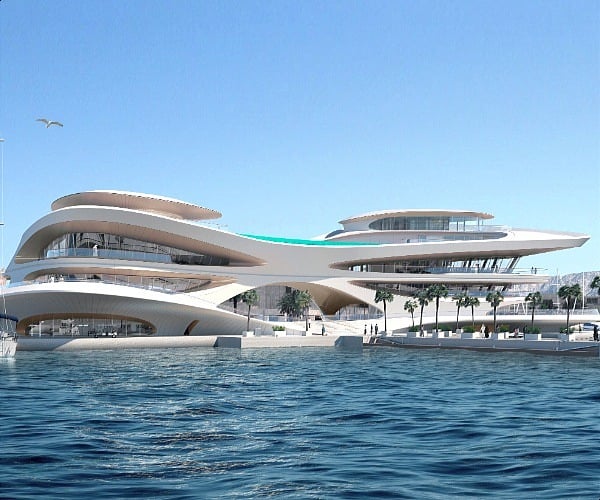
“We were clear from the outset that we wanted to create a building of its place, with the design drawing inspiration from local landscapes and culture, alongside the nature of the marine lifestyle. The team wanted to reimagine the yacht club as a modern concept, a home from home for nautical enthusiasts from all backgrounds, from leisure to elite sport,” said Dan Flower, HKS Design Director and Lead Architect for AMAALA Yacht Club.
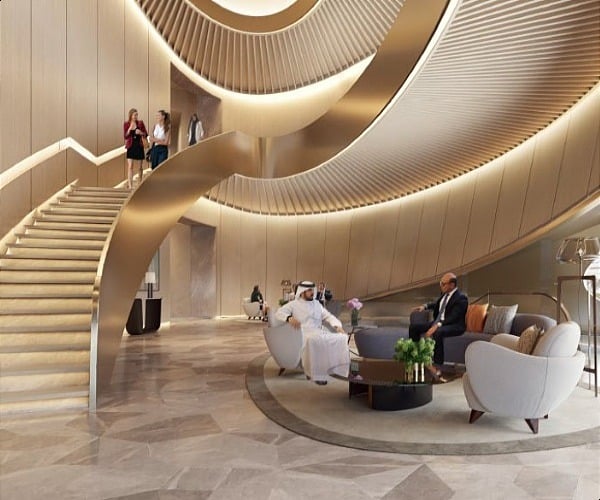
The second inspiration is drawn from mankind’s relationship with the sea and maritime history. This nautical edge will ensure the building sits seamlessly within the marina as a central hub and focal point.
Alongside the ‘sea meets land’ concept, the design references the concept of a traditional Arabian house with a simple smooth white exterior that is cut back to reveal luxurious metal externally and a rich palette of natural and locally sourced materials internally such as stone, timber and leather.
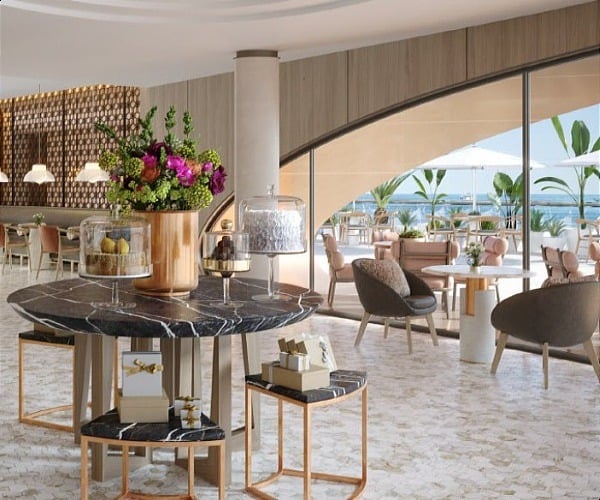
“AMAALA offers an unparalleled opportunity to shape a new tourism destination, and a new home for yachting on the Red Sea. It is a privilege to be involved as designers of this iconic yacht club, which is a centrepiece for the marina and set to evolve guest experience,” explained Kevin Underwood, Global Head of Hospitality at HKS Architects.
“We brought together the global expertise of our firm, using our experience of working with luxury assets to create something truly innovative and contemporary. Sustainability in all aspects is at the heart of our design, seamlessly integrating the building with the stunning mountain and marine landscape of the Red Sea,” he added.
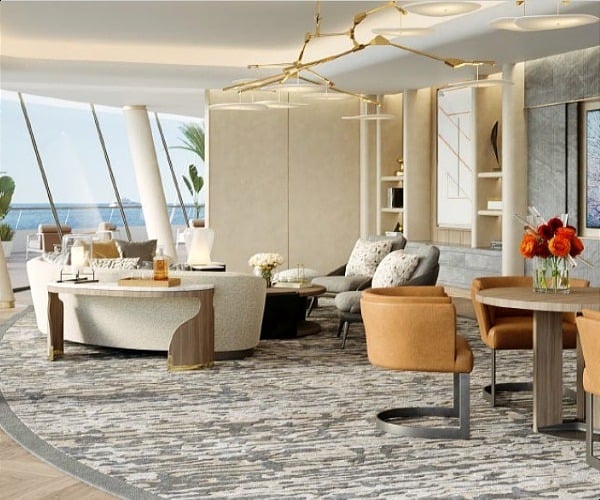
Covering 7,900 sq. m. and set on four levels, the ultra-luxurious club is set to create a home from home for its members whether to do business, relax, entertain or take part in a calendar of yachting events.
Arrival is a key moment for guests by land or by water, with the entrance set within an arch that forms a shaded plaza and frames dramatic views to the Red Sea. The area has a mirrored vaulted ceiling over a star-lit floor which creates an alternative night sky for guests in the evening.
The interior of the club, also designed by HKS architects, along with the landscaping detail, is as visually stimulating as the exterior, with unparalleled attention to detail to ensure guests remain connected to the landscapes around them. Utilising local materials with a focus on stone, timber and metals, and embracing a luxurious, yet authentic brass champagne colour scheme, the bars, lounges and restaurant blend seamlessly together with an infinity loop-like shape throughout.
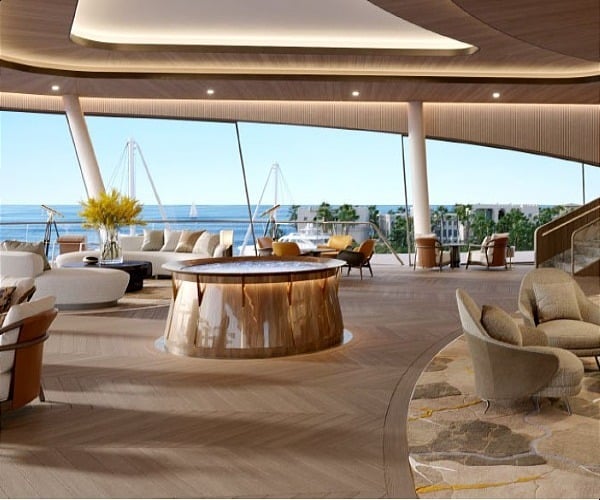
Complimenting the yacht club’s functions, the 10-hectare basin hosts a 120-berth marina for yachts up to 130m in length, and is designed for both residents and yachting events, regattas and launches. Deepwater superyacht berths, fuel dock and personalised service ensures Triple Bay’s future rating as a destination for visiting superyachts, international regattas and domestic cruising.
Set across 4,155 sq. km. and due to welcome first guests in 2024, Triple Bay spans three natural bays along the coastline. The destination is designed to create a one-of-a-kind global wellness hub and is underpinned by a commitment to sustainable development. The whole development is targeting a minimum LEED Gold standard for environmental sustainability.
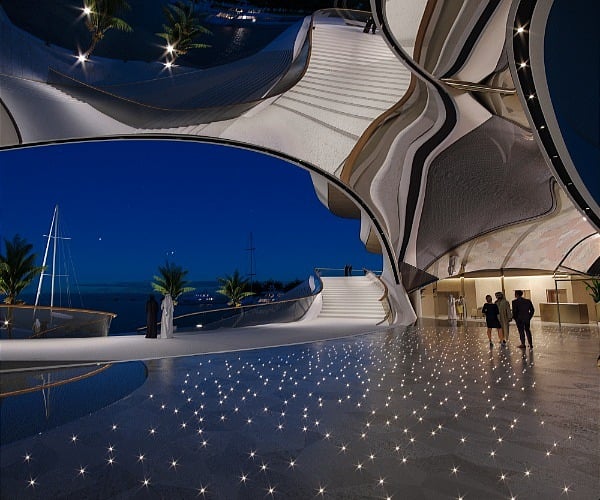
Phase One of Triple Bay is on track to complete in 2024. It consists of eight resorts offering upwards of 1,200 hotel keys and will also feature a range of luxury F&B outlets, retail, and leisure facilities.
IMPORTANT NOTICE:
If you are reading this article anywhere other than on A Luxury Travel Blog, then the chances are that this content has been stolen without permission.
Please make a note of the web address above and contact A Luxury Travel Blog to advise them of this issue.
Thank you for your help in combatting content theft.
Work is well underway on-site to progress enabling infrastructure, groundwork, and key assets with more than 1,000 workers already on site. More than 250 contracts have been awarded to date in excess of 5 billion riyals, with nearly one billion riyals awarded in the first quarter of this year alone, as delivery of the project ramps up on site.
A further 1.2 billion riyals is expected to be awarded in the second quarter of the year and an RFP for the Utilities PPP has already been issued to the market, to ensure the development meets its sustainability ambitions. The resort will be off grid, powered solely by renewable energy.
AMAALA is a core component of the Vision 2030 strategy to diversify the economy by enabling rapid growth in the tourism sector. The project is expected to create upwards of 50,000 new direct, indirect and induced jobs for Saudis, as well as upwards of 11 billion riyals to the country’s GDP once fully operational.
